Palmetto Bluff Real Estate Company Sales Office
Office Hours
Monday-Friday 9am - 5pm
Saturday 9am - 4pm
Sunday 12 - 4pm
Saturday 9am - 4pm
Sunday 12 - 4pm
Dallas, North Carolina, is a sleepy town of a few thousand people between Gastonia and Charlotte. In 1977, it didn’t have much. But what it did have was arrowheads – thousands of them – scattered in the soil and trees of its forests, tiny reminders of a long-gone tradition of native hunting. As a child, that’s all James Parker needed.
He gathered them where he could, and before too long, he was making his own. Of course, you can’t do much with an arrowhead on its own, so young Parker started making his own bows and arrows, soaking up ancient knowledge from every book he could get his hands on. From Time Life’s series on the emergence of man, he learned flintknapping. “That’s the layman’s term for the scientific phrase ‘lithic reduction continuum,’” he said, “which is the making of stone tools.” If you ask him where he learned to make a bow, he’ll list off books written by J. B. Hunt, Jim Hamm, Dr. Charles Grayson, Adam Karpowicz, and more.
It’s a decidedly intellectual path to take toward a way of life that perished around the time such intellectual pursuits were born. But Parker soon realized he could only go so far on natural ability alone. “The first bow I made, my teacher still has that thing. I begged her for it back,” he said. “It’s pretty pitiful.”
Parker’s teachers encouraged his interest in primitive technology, with one history teacher even basing an entire lesson on it for the sole benefit of one student. As part of the lesson, the teacher showed a film on French flintknapper Francois Bordes plying his trade. “It was the first time I ever saw someone flintknapping,” Parker said. “When I saw that, I knew I was doing it wrong.”
His research would put him in the company of some of the leading experts in primitive living. Dr. Errett Callahan, considered one of the grandfathers of primitive technology, was an early mentor. It was during his workshops that Parker encountered a whole world of techniques for crafting everything from axes to knives using materials pulled from the ground. Another mentor was Steve Watts, who served as a prop maker on the film Cast Away and has written several books on how primitive man lived. He not only shepherded Parker through his journey from student to teacher, but he also introduced him to an entire way of life that harkens back to man’s roots. “He taught me everything that you would have to know to live in a primitive setting. It takes hundreds of skills,” he said. “Just making bows and arrows you’re going to starve. You have to know plant identification; how to make friction fires, baskets, clothes, and medicine; how to find water; how to hunt and trap. . . . This is how we lived for thousands of years, and then we just messed it up.”
Today, Parker is trying to bring back these old ways. Those who attended Palmetto Bluff’s Field + Fire will recall the large clutch of men standing off to one corner of the River House’s expansive lawn. They were there in awe of Parker and the array of historical bows and arrows at his table. There was the stick bow, the simple bent piece of wood employed by both Native Americans and English bowman. Then there were horn composite bows, the next great leap in weapons technology pioneered by the nomads of the Asiatic steppe. Crab bows, which look like curls of wood until contorted into deadly form by a rope. Bows from Egypt, Mongolia, and Greece, each with a different take on the design as the weapon marched toward modernity.
And with each piece, he told the story of how mankind’s march to modernity was defined by the weapons we used to hunt.
“Without this technology, there would be no compound bow. There would be no rifle,” he said. As his audience eyed the bows in rapt silence, he told of how these weapons evolved. How a Turkish prince once shot an arrow half a mile, a record for the longest projectile that would stand until the single-fire cartridge was invented. But that’s just how he preaches the gospel of man’s forgotten skills one person at a time. Beyond leading workshops like the one at Field + Fire, he teaches primitive living classes, guiding students through the basic survival skills we all once shared. He also teaches classes on making your own bow, giving hunters a chance to reconnect with that primitive euphoria that has been diminished by firearms technology.
“You’re at the top of your game when you make your own bow, arrow, and arrowhead and take game with it. You can’t top it,” he said, adding with a laugh. “The only way to top it is to jump on its back and knife it or bite it.”
And with each student who passes through his class, he helps preserve a way of life we’ve left behind.
“These skills used to be passed from family to family, from group to group,” he said. “Some of these skills were lost because they weren’t passed down, and now they’re long forgotten.”
But for those that remain, Parker is here to pass them on.
Photography by Krisztian Lonyai%GALLERY%
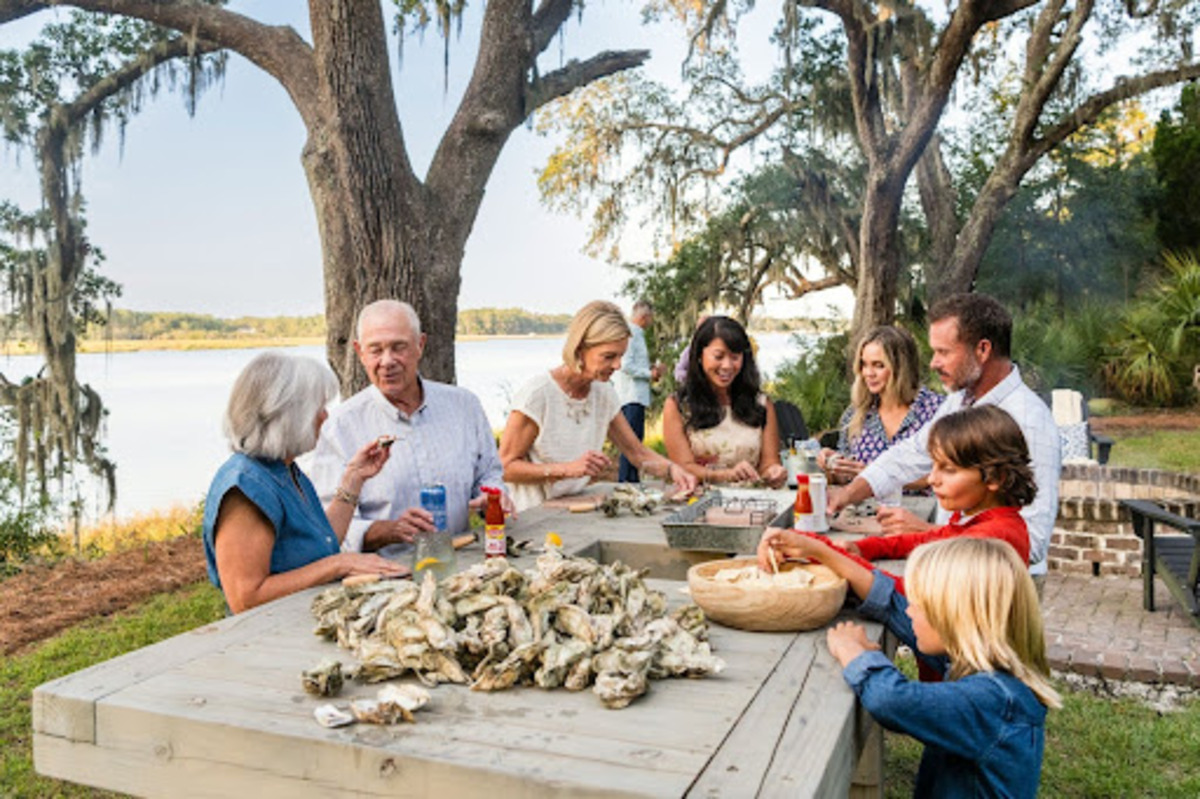
Best Things to Eat in South Carolina’s Lowcountry When it comes to Southern cuisine, no place captures the heart (and appetite) quite like the South Carolina Lowcountry. Rooted in history and layered with coastal influence, this region serves up a culinary id...
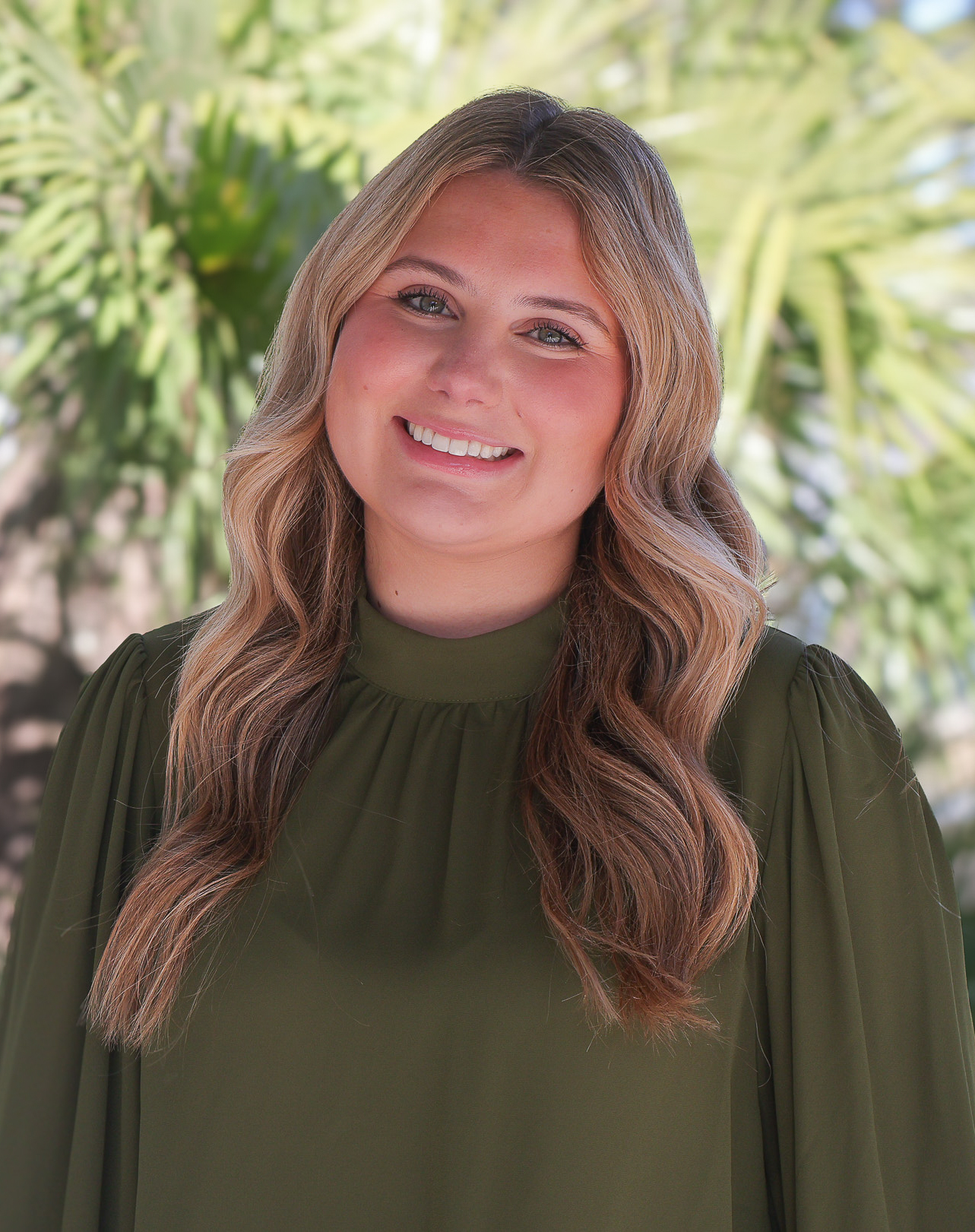
Marissa’s Journey to Palmetto Bluff At Palmetto Bluff, hospitality goes beyond service; it’s a way of life. For Members and visitors alike, there’s a quiet charm to the place that draws you in, makes you feel at ease, and leaves a lasting impression. Few peop...
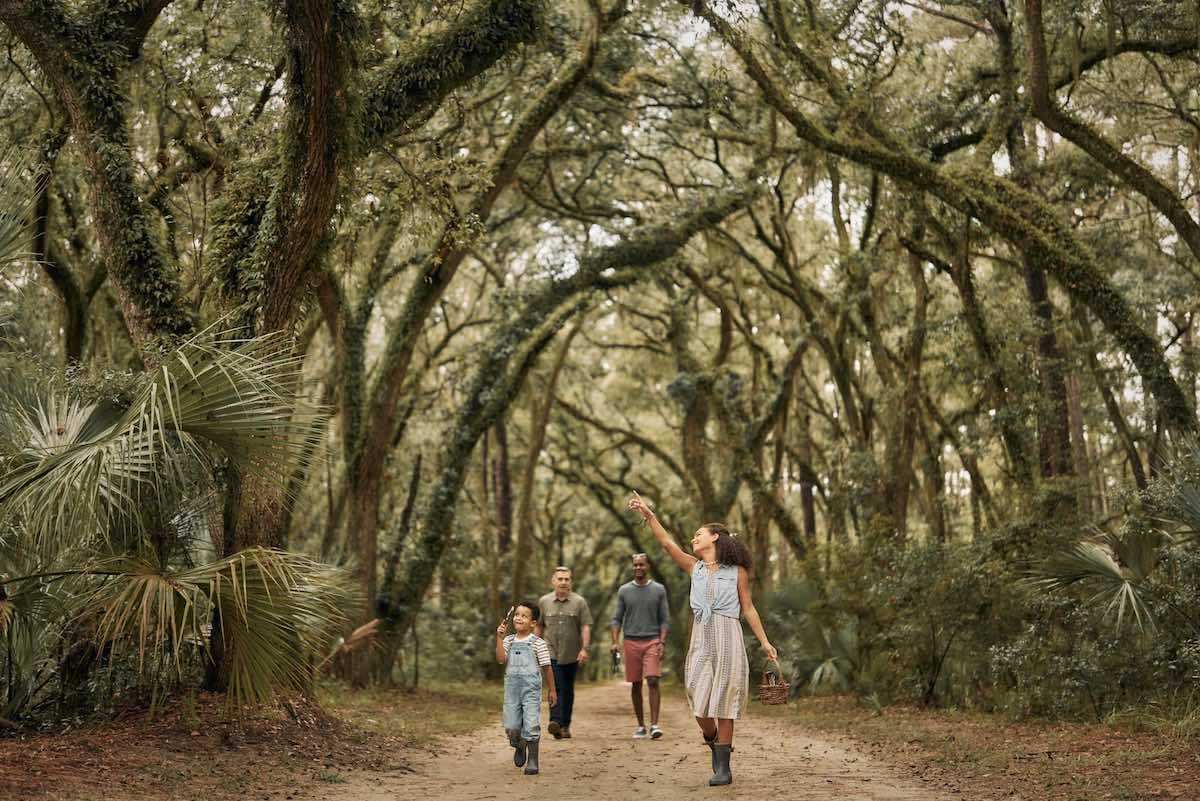
Top 7 Palmetto Bluff Nature Trails Do you ever get the feeling of wanting to escape and wander into a serene paradise? The nature trails at Palmetto Bluff afford opportunities to roam and admire the vastness of the Bluff’s 20,000 acres. Throughout the communi...

Palmetto Bluff’s Moreland Village feels a world away from the more traditional architecture of the iconi...

We are thrilled to introduce the inaugural winners of the Inspiring the Arts Scholarship—three extraordinary young women pursuing their artistic dreams through higher education! Katherine Donahue has been named our first official scholarship recipient, with Em...

From handmade jewelry to performance wear, the latest arrivals at Palmetto Bluff’s retail spots capture the season in true Lowcountry style. This summer, the Bluff’s shops are full of fresh finds, carefully chosen by our trusted retailers—including FLOW Galler...
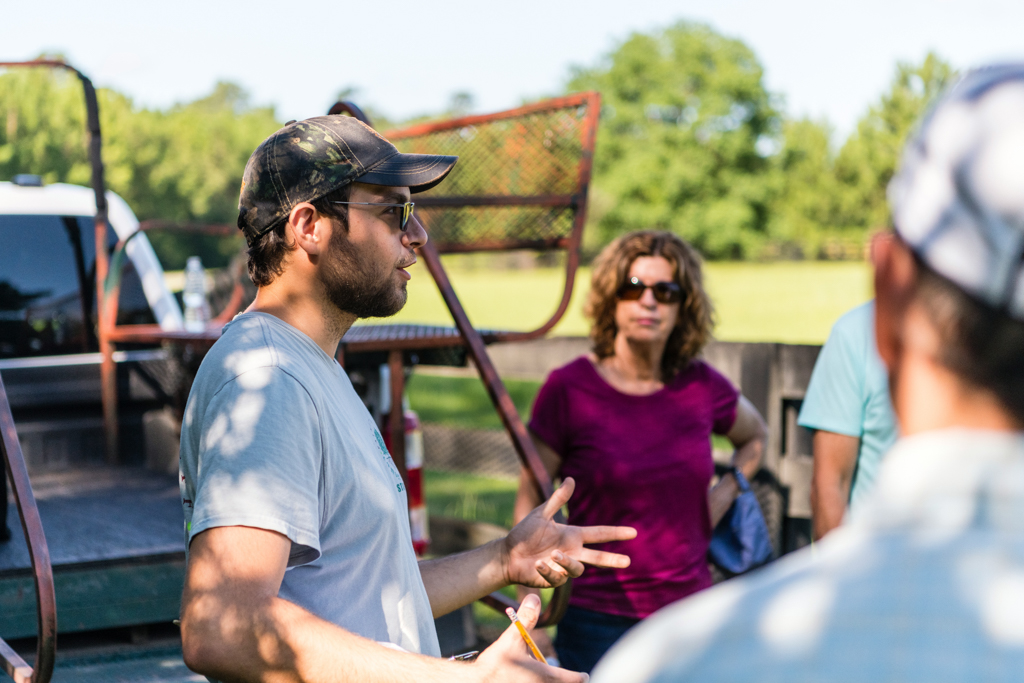
Citizen Science is Thriving at Palmetto BluffDid you know that residents of Palmetto Bluff are playing a vital role in national and global conservation efforts—all from their backyard?Through the Palmetto Bluff Conservancy’s growing Citizen Science programs, c...
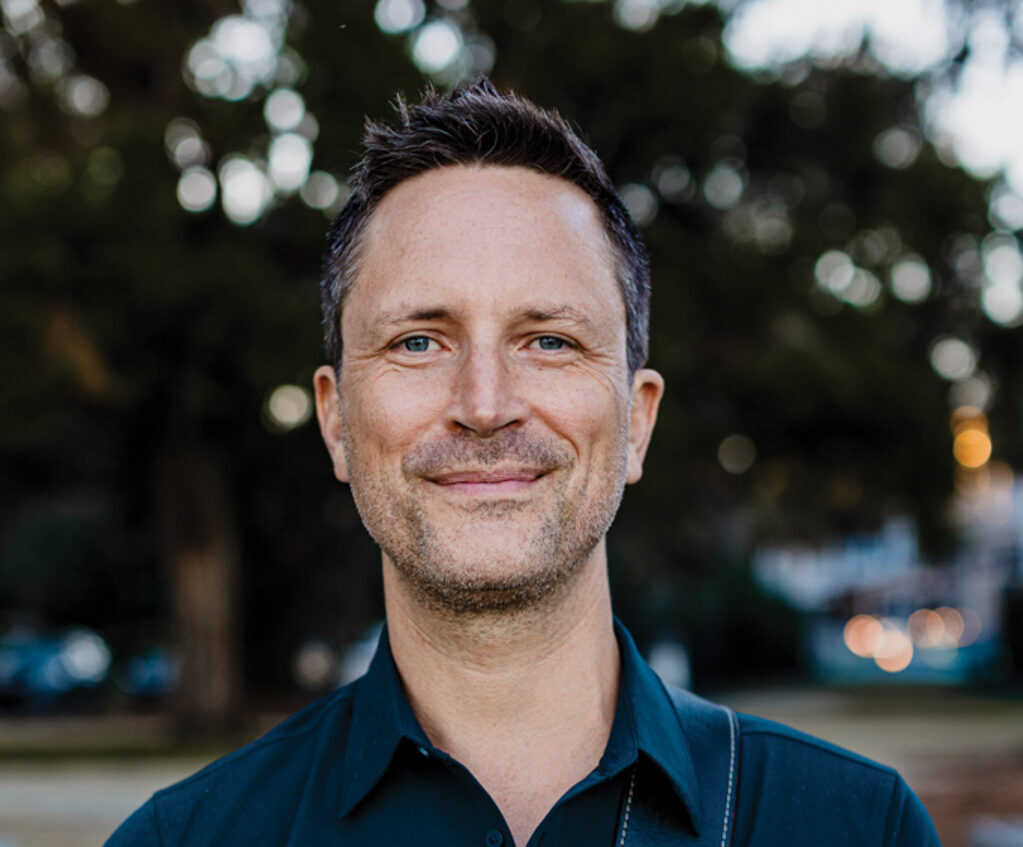
In October 2024, Grammy Award-winning musician Clay Ross visited Palmetto Bluff as part of The Arts Initiative's Artist in Residence Program. Through storytelling and song, he explores identity, heritage, and the universal language of sound. By Barry Kaufman ...

Palmetto Bluff Club Executive Chef Beth Cosgrove and Director of Culinary, Chef Rhy Waddington, Cook Up Four Peachy Recipes for a Summer in the South. Is there anything more iconic than a southern peach? A symbol of summer and Southern heritage, the peach car...
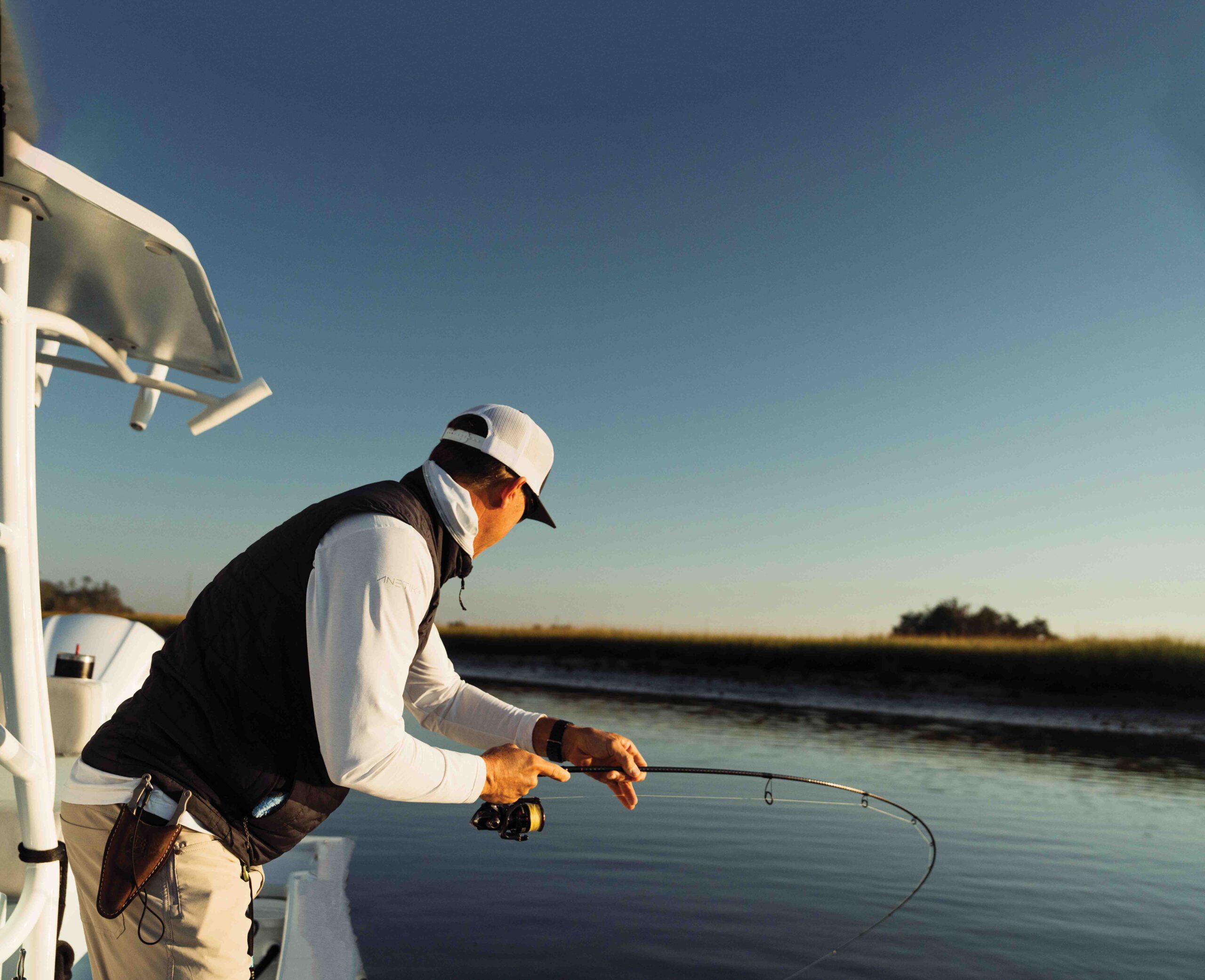
Following the tides and angling for redfish in Lowcountry creeks and estuaries with Captains Brian Vaughn and Will Stephens Story by Sandy Lang It is a sunny morning in October and the water is calm and glassy. The silence is punctuated by a gush of breath f...
Learn about the Palmetto Bluff Conservancy and how we keep the vision of our land in place.
On land or water, there is an ever-evolving variety of activities.
We do not attempt to independently verify the currency, completeness, accuracy or authenticity of the data contained herein. All area measurements and calculations are approximate and should be independently verified. Data may be subject to transcription and transmission errors. Accordingly, the data is provided on an “as is” “as available” basis only and may not reflect all real estate activity in the market”. © [2023] REsides, Inc. All rights reserved. Certain information contained herein is derived from information, which is the licensed property of, and copyrighted by, REsides, Inc.